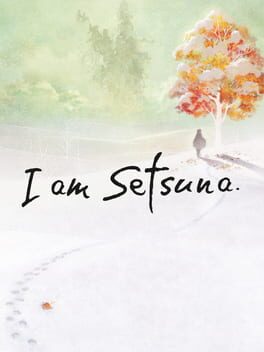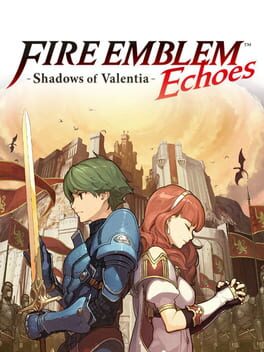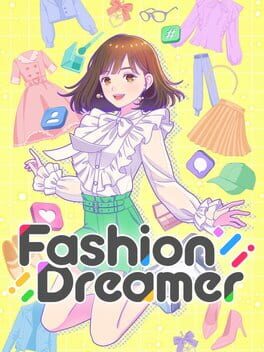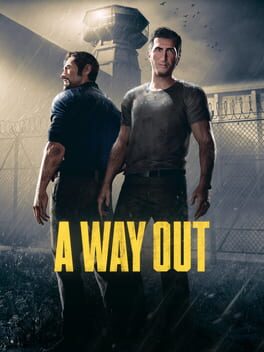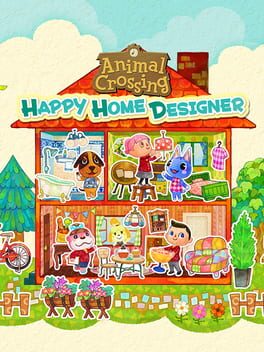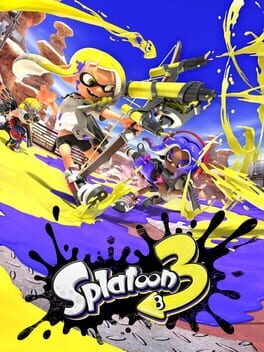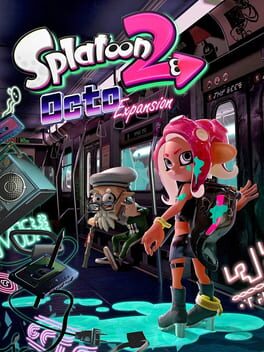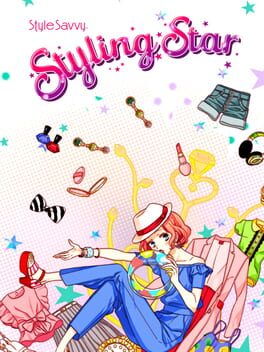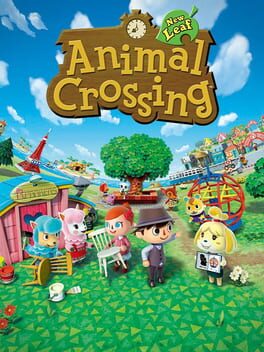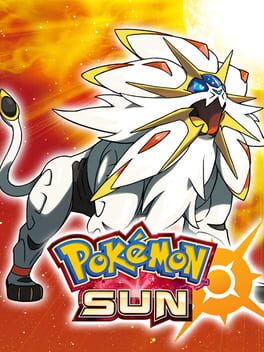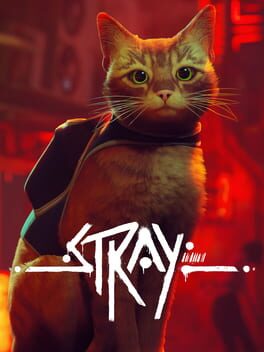2016
For the cold and occasionally snowy month of February, I chose to play I Am Setsuna, and I’m so glad I did. This is a spoiler free review.
I Am Setsuna is the first game by Square Enix’s Tokyo RPG Factory, a studio made of just ten core employees whose goal was to recreate the magic of the SNES era roleplaying games. The influence of the “old masters” of the JRPG is not simply something felt throughout- it is the air the game breathes. This can be considered both the greatest strength and the most crushing weakness of I Am Setsuna. The game with the greatest influence on Setsuna is Chrono Trigger- something insurmountable to live up to. Maybe it’s because I haven’t gotten around to playing Chrono Trigger yet, and I don’t feel compelled to compare the two, that I found Setsuna so striking.
Every location in this game has two constants; it is covered in an unmelting blanket of snow, and it’s scored by a lone piano. These two choices are extremely controversial among players and critics, but I truly can’t imagine this game being nearly as successful artistically without this unwavering commitment to this direction. It was absolutely the correct choice.
The combat system is interesting, and one I disliked quite a bit at first. One of the reasons I like JRPGs as a genre so much is the focus on strategy rather than quick execution in gameplay. The common turn-based combat of JRPGs clicks with me, but Setsuna has a sort of hybrid- the ATB, or active time battle system. It did grow on me, eventually. I found longer battles to be very rhythmic, and if I needed some time to think, I could always dive into a safe menu to find my bearings.
The basis of Setsuna’s systems are fantastic on paper. Defeating common enemies rewards you with unique materials. You can sell these materials for money, and selling enough of a specific material also grants you the ability to use it to create skills called Spritnite that can be equipped. This creates a cycle; use your skills to kill enemies for drops, use those drops to create stronger skills, rinse and repeat. It’s a bit more complex than my simple explanation makes it seem, but the foundation is rock solid. The implementation is where this system can become a bit shaky.
The game also has combo attacks achieved by equipping two characters with compatible Spritnite. I made sure to equip Endir and Nidr with the Shock and Provoke skills respectively to create the Blowbeat combo. This is where I discovered the true way to play I Am Setsuna: find one OP combo and, using Setsuna’s support on the side for HP and MP management, coast through the rest of the game. Flattening every combat encounter was something I appreciated more than not. It made things easy, but finding and using a build that worked so smoothly was satisfying. This didn’t trivialize the entire rest of the game though- the bosses could still be quite tough, as they’re all massive damage sponges. All of this comes together to create a combat system that really clicked with me, and I even found it addictive at times.
You travel the eternal winter with six people, all of different backgrounds, with different stories to tell. These characters all have their own simple narrative, each with a fun twist, that ties thematically back to the main ideas of the game. Though they’re not complex, they don’t need to be. It strikes a lovely balance. The story is truly what makes this game so special. Like the rest of the experience it’s simple, a bit underdeveloped, and merely echoes the great masters before it, but these are all things I love about it. Its brevity is a strength, its ability to exist in the shadows of great stories without being a mere copy is a wonderful thing, and its confidence to keep the story simple is refreshing, especially within the context of its genre. It does exactly what it needs to, in a quiet and elegant manner. This winter journey’s tale ties together the identity of the game to create a serene, melancholic journey.
I Am Setsuna is a game that has received much criticism. It is not a JRPG darling like the classics it exists to emulate. It is certainly flawed, in many ways, but that doesn’t keep Setsuna from being a very special game. I think so many people are so focused on where Setsuna draws its inspirations, that they are unable to experience it for the game it is. It’s true that every step of the development was inspired by games of the past. But that doesn’t mean Setsuna should exist within the confines of those expectations. This game is truly something special when removed from the preconceptions placed on it, and I hope more people will be able to approach it with a perspective similar to mine. I think those people will have a very meaningful experience.
___ this was adapted from a full review written for my blog
I Am Setsuna is the first game by Square Enix’s Tokyo RPG Factory, a studio made of just ten core employees whose goal was to recreate the magic of the SNES era roleplaying games. The influence of the “old masters” of the JRPG is not simply something felt throughout- it is the air the game breathes. This can be considered both the greatest strength and the most crushing weakness of I Am Setsuna. The game with the greatest influence on Setsuna is Chrono Trigger- something insurmountable to live up to. Maybe it’s because I haven’t gotten around to playing Chrono Trigger yet, and I don’t feel compelled to compare the two, that I found Setsuna so striking.
Every location in this game has two constants; it is covered in an unmelting blanket of snow, and it’s scored by a lone piano. These two choices are extremely controversial among players and critics, but I truly can’t imagine this game being nearly as successful artistically without this unwavering commitment to this direction. It was absolutely the correct choice.
The combat system is interesting, and one I disliked quite a bit at first. One of the reasons I like JRPGs as a genre so much is the focus on strategy rather than quick execution in gameplay. The common turn-based combat of JRPGs clicks with me, but Setsuna has a sort of hybrid- the ATB, or active time battle system. It did grow on me, eventually. I found longer battles to be very rhythmic, and if I needed some time to think, I could always dive into a safe menu to find my bearings.
The basis of Setsuna’s systems are fantastic on paper. Defeating common enemies rewards you with unique materials. You can sell these materials for money, and selling enough of a specific material also grants you the ability to use it to create skills called Spritnite that can be equipped. This creates a cycle; use your skills to kill enemies for drops, use those drops to create stronger skills, rinse and repeat. It’s a bit more complex than my simple explanation makes it seem, but the foundation is rock solid. The implementation is where this system can become a bit shaky.
The game also has combo attacks achieved by equipping two characters with compatible Spritnite. I made sure to equip Endir and Nidr with the Shock and Provoke skills respectively to create the Blowbeat combo. This is where I discovered the true way to play I Am Setsuna: find one OP combo and, using Setsuna’s support on the side for HP and MP management, coast through the rest of the game. Flattening every combat encounter was something I appreciated more than not. It made things easy, but finding and using a build that worked so smoothly was satisfying. This didn’t trivialize the entire rest of the game though- the bosses could still be quite tough, as they’re all massive damage sponges. All of this comes together to create a combat system that really clicked with me, and I even found it addictive at times.
You travel the eternal winter with six people, all of different backgrounds, with different stories to tell. These characters all have their own simple narrative, each with a fun twist, that ties thematically back to the main ideas of the game. Though they’re not complex, they don’t need to be. It strikes a lovely balance. The story is truly what makes this game so special. Like the rest of the experience it’s simple, a bit underdeveloped, and merely echoes the great masters before it, but these are all things I love about it. Its brevity is a strength, its ability to exist in the shadows of great stories without being a mere copy is a wonderful thing, and its confidence to keep the story simple is refreshing, especially within the context of its genre. It does exactly what it needs to, in a quiet and elegant manner. This winter journey’s tale ties together the identity of the game to create a serene, melancholic journey.
I Am Setsuna is a game that has received much criticism. It is not a JRPG darling like the classics it exists to emulate. It is certainly flawed, in many ways, but that doesn’t keep Setsuna from being a very special game. I think so many people are so focused on where Setsuna draws its inspirations, that they are unable to experience it for the game it is. It’s true that every step of the development was inspired by games of the past. But that doesn’t mean Setsuna should exist within the confines of those expectations. This game is truly something special when removed from the preconceptions placed on it, and I hope more people will be able to approach it with a perspective similar to mine. I think those people will have a very meaningful experience.
___ this was adapted from a full review written for my blog
2012
I had, of course, been hearing of Journey since my entry into the gaming world in 2015, and though I had always planned to play it, the one who truly brought it to my attention was my best friend. I’m certain it was one of our first conversations about video games after we met; “Have you played Journey? You haven’t? Oh my gosh, you have to play Journey!” Even then I said of course I would, but three years passed without honoring that, despite the game sitting in my Steam library. I just never found the right moment. Surely, it was coming.
Just a few days into 2024, the first new year after moving across the country alone to chase something I dream of, my best friend and I were staying at my childhood home on the water. It was one of the few annual times we are able to see each other in person, and we had much to do. But in the middle of the night, we found ourselves hooking up my Steam Deck to the TV’s HDMI. With the faint sound of the crashing waves outside the window, we sat on the title screen of a game called Journey. It was a New Years’ game, my friend said.
Journey’s story is not one that can be told in any other medium. In 2012, ThatGameCompany figured out what the industry has been grappling with before and since; how to tell a story only a video game can tell.
Journey is a game accessible to nearly everyone, playable for those who have been gaming since their childhoods to those holding a controller for the first time. It’s not difficult, it’s not overwhelming, it doesn’t even speak a single word. Your fellow travelers could be anyone, from anywhere, and everyone will share the same experience. The only thing Journey asks of the player, and of the medium of gaming, is connection- the physical and emotional connection between the player and the traveler. Simple as that is, it is integral to Journey’s identity and impact. And video games are the only medium that can provide the connection needed. Journey triumphs in its simplicity, and approaches the medium of gaming with that same outlook. And it’s rewarded for it, time and time again.
That’s why it is impossible to look upon Journey without looking at yourself and your time with it. It’s why I hesitate to call this a review of any kind. I don’t know if it’s possible, for myself at least, to look at Journey through a completely objective lens. And even if you could, I think that’s missing the point. Your personal connection with this game is what makes it so beautiful. Journey trusts that, through our eyes, a game about nothing can become a game about everything. This is where the beauty of the nothingness in Journey lies.
__ this was adapted from a full review of Journey I wrote for my blog
Just a few days into 2024, the first new year after moving across the country alone to chase something I dream of, my best friend and I were staying at my childhood home on the water. It was one of the few annual times we are able to see each other in person, and we had much to do. But in the middle of the night, we found ourselves hooking up my Steam Deck to the TV’s HDMI. With the faint sound of the crashing waves outside the window, we sat on the title screen of a game called Journey. It was a New Years’ game, my friend said.
Journey’s story is not one that can be told in any other medium. In 2012, ThatGameCompany figured out what the industry has been grappling with before and since; how to tell a story only a video game can tell.
Journey is a game accessible to nearly everyone, playable for those who have been gaming since their childhoods to those holding a controller for the first time. It’s not difficult, it’s not overwhelming, it doesn’t even speak a single word. Your fellow travelers could be anyone, from anywhere, and everyone will share the same experience. The only thing Journey asks of the player, and of the medium of gaming, is connection- the physical and emotional connection between the player and the traveler. Simple as that is, it is integral to Journey’s identity and impact. And video games are the only medium that can provide the connection needed. Journey triumphs in its simplicity, and approaches the medium of gaming with that same outlook. And it’s rewarded for it, time and time again.
That’s why it is impossible to look upon Journey without looking at yourself and your time with it. It’s why I hesitate to call this a review of any kind. I don’t know if it’s possible, for myself at least, to look at Journey through a completely objective lens. And even if you could, I think that’s missing the point. Your personal connection with this game is what makes it so beautiful. Journey trusts that, through our eyes, a game about nothing can become a game about everything. This is where the beauty of the nothingness in Journey lies.
__ this was adapted from a full review of Journey I wrote for my blog
I have never played a game quite like Fire Emblem Echoes before, and I understand that I also never will again.
For my first Fire Emblem game, this game has left a deep impression on me in countless ways- it absolutely flourishes in every major area I can think of a tactical JRPG wanting to succeed in. I’m fairly certain my experience with future Fire Emblem games is all downhill from here, but I’m so happy I was able to experience this game the way I did. I don't care.
There is a deep implicit bias throughout my playthrough and this entire review that is worth noting for many reasons- a close friend, who happens to consider this his favorite game of all time, replayed this game alongside my first playthrough, guiding me, discussing with me, and honestly giving me the most perfect first playthrough experience one could ever ask for. His passion for this game is so palpable and contagious. I feel so blessed to have experienced this with someone who cares so deeply for a video game and wanted to show me exactly why- and so blessed that he trusted me to share this passion with. So I hope you can understand why I, too, consider this one of my favorite games of all time.
I’d first like to briefly touch on the artistic direction given to this game as a whole. I have so much love and respect for illustrator and character designer Hidari, whose work the entirety of this game’s identity revolves around. I could not have come up with a better choice of artist. The harmony the art direction achieves with the gameplay, the story, and even the technical limitations of the 3DS is undoubtedly an achievement. The relative sophistication of the character designs and setting are unexpected of a Fire Emblem title, and so deeply appreciated. The maturity the art direction provides gives the narrative a sense of legitimacy it thrives in.
Though my usual protocol is to talk about a game’s soundtrack last, I think it needs to be front and center alongside the art direction. Like Hidari’s impeccable work on the art of Fire Emblem Echoes, this game’s identity also hinges on its soundtrack. JRPGs are known for their robust and often orchestrated soundtracks, but I believe this is on another level even among its contemporaries. At many moments, this soundtrack feels truly flawless. This game should always, no matter what, be played with the sound on, if nothing just for the beautiful weaving of the game’s main leitmotif throughout your journey.
Finally, it’s time to speak about the gameplay of Shadows of Valencia. I’m unable to offer valuable comparisons to other Fire Emblem games, or even to other tactical JRPGs, due to my inexperience with both, so I’m going to judge the gameplay on purely its own merits. And, by my account, the gameplay is incredible. For reference, I played Echoes on normal difficulty with no permadeath, as deliberated by my friend and I to be the best experience for a new Fire Emblem player. From the moment you start playing a map you realize how addicting it is. This game has mastered the sense of micromanagement and control in a way that makes every battle feel genuinely satisfying to overcome. Fire Emblem has had many years and many generations to perfect its core mechanics, so it shouldn’t come as a surprise, but I was consistently impressed with how silky smooth the battles felt to navigate. Every choice intentional, every enemy balanced- as someone with a very heavy background in Pokemon, I was taken aback by how pristine the core mechanics felt to use; Fire Emblem is a much more methodical design. Most importantly, there was not a single moment in this game where I felt that a battle was unbeatable. To me, that is one of the strongest signs of a well designed video game in any genre or series. My friends' coaching, while invaluable in helping me understand the mechanics and meta of this game in a way the text alone does not provide, I didn’t find to make the game easy at all. In many cases, my pitfalls actually came from having too much information on the game’s mechanics than I probably should have for my skill level, resulting in being too conscious of things like turn count and specific strategies and not comfortable enough with how my units work and what each classes excel at. At every turn, the depth of the gameplay astounded me. I am not the type to talk about specific gameplay instances in reviews, but I do think it’s worth noting the interesting and often despised map gimmicks of Celica’s route- the ships, deserts, and swamps that she and her army navigate. I enjoyed these a lot. Of course there is frustration there, but it’s not unintentional- where Alm’s route plays map design very straight to allow the player full control of their army, Celica’s maps offers a, in my opinion, welcome departure from the free micromanagement of an open field. With her abundance of ranged attacking units and trio of pegasus knights, once crossing the Regelian border especially, the maps offer tough love, and become an enemy in their own right to overcome- something that ties in narratively to Celica’s journey through Valentia.
With that, we arrive at the story of Fire Emblem Echoes. For all the game’s triumphs, this one is the most beautiful to me. I will play many games in my future with a stunning art direction. I’ll play many games with a beautifully arranged soundtrack, and many more with gameplay systems so satisfying I dread setting my console down. I’ll play games that my friends want to share with me, and spend many more hours talking with people I love about a game we enjoy. I’ll play so many games with stories that captivate me. But I will never play a game quite like Fire Emblem Echoes again in my life.
It’s difficult to explain why this game’s story is so special compared to the countless power struggles of wars and gods in the history of the JRPG. And I understand why someone jaded playing this game would see little value or importance in the path this narrative takes. But Shadows of Valentia is a story that expects something from the player. If you are willing to listen, and engage in good faith, you will receive so much more in return. Fire Emblem Echoes has so much to say about both gods and man, how they influence each other, how they inspire each other, and how they tear each other to the ground. And what the solution to this struggle looks like for a young generation of people who have watched this ongoing battle shape the lives they live. It delivers these messages through well written characters- where they come from, their actions, and their relationships with others, from the most insignificant NPCs to the two characters spearheading this narrative- the Bearers of the Brand, Alm and Celica. These two’s relationship, and its juxtaposition to the relationship between the worldviews they stand for, is fascinating, and provides a strong foundation for a story. The depth given to Alm, Celica, and the fantastic cast of supporting characters in both the protagonist and antagonist’s parties, aided by surprisingly competent voice acting and the undeniable charm of the 3DS’s pre rendered cutscenes, make this story enjoyable all the way through. Despite two glaring stumbles (a woman in Alm’s party and a woman in Rigel’s royal court), every supporting character is written with some complexity and growth, and it shows. Where Alm’s story reaches enjoyable and dramatic, though somewhat conventional, heights, Celica may be one of the most interesting characters I’ve ever met in a video game. Her story is so compelling, and despite a few writing slip-ups towards the end, her journey ends up a fantastic character study and a beautiful narrative. The biggest issue with this game by far, in any area, is Celica’s antagonist falling short of the complexity and nuance her story requires- though in the end, she still shines through as something deeply special. There is little more I can say without beginning to discuss specifics, but it should be clear that I feel this game’s narrative is something special, and I’m doubtful I was able to do it justice in this short paragraph. What was able to do it justice, however, were the hours upon hours my friend and I spent just discussing the game, its story, everything we loved and everything that frustrated us. For a game’s narrative to inspire that kind of conversation is an undeniable triumph. And I suspect we were not the only ones doing this kind of analysis out of pure love.
Throughout my hours with Fire Emblem Echoes, I experienced a kind of love for a video game I don’t think I’ve ever had. Completely captivated throughout the six months it took me to work my way through. I knew before the first chapter was complete that this would be one of my favorite games of all time. But I didn’t know it would be going toe to toe with Breath of the Wild for the number one spot. I saw this game, slowly, carefully, live up to all my expectations, one by one. That is something I will never experience again.
I had a very emotional connection to Heritors of Arcadia for YEARS before I ever bought the game because of someone I was very close with when I was younger. It, embarrassing it may be, has been a constant that was with me through something difficult I experienced when I was young. Watching, and participating, in the making of a story I had heard sung countless times unfold before my eyes was an absolutely unforgettable experience. An experience that can only be achieved in the medium of video games.
For my first Fire Emblem game, this game has left a deep impression on me in countless ways- it absolutely flourishes in every major area I can think of a tactical JRPG wanting to succeed in. I’m fairly certain my experience with future Fire Emblem games is all downhill from here, but I’m so happy I was able to experience this game the way I did. I don't care.
There is a deep implicit bias throughout my playthrough and this entire review that is worth noting for many reasons- a close friend, who happens to consider this his favorite game of all time, replayed this game alongside my first playthrough, guiding me, discussing with me, and honestly giving me the most perfect first playthrough experience one could ever ask for. His passion for this game is so palpable and contagious. I feel so blessed to have experienced this with someone who cares so deeply for a video game and wanted to show me exactly why- and so blessed that he trusted me to share this passion with. So I hope you can understand why I, too, consider this one of my favorite games of all time.
I’d first like to briefly touch on the artistic direction given to this game as a whole. I have so much love and respect for illustrator and character designer Hidari, whose work the entirety of this game’s identity revolves around. I could not have come up with a better choice of artist. The harmony the art direction achieves with the gameplay, the story, and even the technical limitations of the 3DS is undoubtedly an achievement. The relative sophistication of the character designs and setting are unexpected of a Fire Emblem title, and so deeply appreciated. The maturity the art direction provides gives the narrative a sense of legitimacy it thrives in.
Though my usual protocol is to talk about a game’s soundtrack last, I think it needs to be front and center alongside the art direction. Like Hidari’s impeccable work on the art of Fire Emblem Echoes, this game’s identity also hinges on its soundtrack. JRPGs are known for their robust and often orchestrated soundtracks, but I believe this is on another level even among its contemporaries. At many moments, this soundtrack feels truly flawless. This game should always, no matter what, be played with the sound on, if nothing just for the beautiful weaving of the game’s main leitmotif throughout your journey.
Finally, it’s time to speak about the gameplay of Shadows of Valencia. I’m unable to offer valuable comparisons to other Fire Emblem games, or even to other tactical JRPGs, due to my inexperience with both, so I’m going to judge the gameplay on purely its own merits. And, by my account, the gameplay is incredible. For reference, I played Echoes on normal difficulty with no permadeath, as deliberated by my friend and I to be the best experience for a new Fire Emblem player. From the moment you start playing a map you realize how addicting it is. This game has mastered the sense of micromanagement and control in a way that makes every battle feel genuinely satisfying to overcome. Fire Emblem has had many years and many generations to perfect its core mechanics, so it shouldn’t come as a surprise, but I was consistently impressed with how silky smooth the battles felt to navigate. Every choice intentional, every enemy balanced- as someone with a very heavy background in Pokemon, I was taken aback by how pristine the core mechanics felt to use; Fire Emblem is a much more methodical design. Most importantly, there was not a single moment in this game where I felt that a battle was unbeatable. To me, that is one of the strongest signs of a well designed video game in any genre or series. My friends' coaching, while invaluable in helping me understand the mechanics and meta of this game in a way the text alone does not provide, I didn’t find to make the game easy at all. In many cases, my pitfalls actually came from having too much information on the game’s mechanics than I probably should have for my skill level, resulting in being too conscious of things like turn count and specific strategies and not comfortable enough with how my units work and what each classes excel at. At every turn, the depth of the gameplay astounded me. I am not the type to talk about specific gameplay instances in reviews, but I do think it’s worth noting the interesting and often despised map gimmicks of Celica’s route- the ships, deserts, and swamps that she and her army navigate. I enjoyed these a lot. Of course there is frustration there, but it’s not unintentional- where Alm’s route plays map design very straight to allow the player full control of their army, Celica’s maps offers a, in my opinion, welcome departure from the free micromanagement of an open field. With her abundance of ranged attacking units and trio of pegasus knights, once crossing the Regelian border especially, the maps offer tough love, and become an enemy in their own right to overcome- something that ties in narratively to Celica’s journey through Valentia.
With that, we arrive at the story of Fire Emblem Echoes. For all the game’s triumphs, this one is the most beautiful to me. I will play many games in my future with a stunning art direction. I’ll play many games with a beautifully arranged soundtrack, and many more with gameplay systems so satisfying I dread setting my console down. I’ll play games that my friends want to share with me, and spend many more hours talking with people I love about a game we enjoy. I’ll play so many games with stories that captivate me. But I will never play a game quite like Fire Emblem Echoes again in my life.
It’s difficult to explain why this game’s story is so special compared to the countless power struggles of wars and gods in the history of the JRPG. And I understand why someone jaded playing this game would see little value or importance in the path this narrative takes. But Shadows of Valentia is a story that expects something from the player. If you are willing to listen, and engage in good faith, you will receive so much more in return. Fire Emblem Echoes has so much to say about both gods and man, how they influence each other, how they inspire each other, and how they tear each other to the ground. And what the solution to this struggle looks like for a young generation of people who have watched this ongoing battle shape the lives they live. It delivers these messages through well written characters- where they come from, their actions, and their relationships with others, from the most insignificant NPCs to the two characters spearheading this narrative- the Bearers of the Brand, Alm and Celica. These two’s relationship, and its juxtaposition to the relationship between the worldviews they stand for, is fascinating, and provides a strong foundation for a story. The depth given to Alm, Celica, and the fantastic cast of supporting characters in both the protagonist and antagonist’s parties, aided by surprisingly competent voice acting and the undeniable charm of the 3DS’s pre rendered cutscenes, make this story enjoyable all the way through. Despite two glaring stumbles (a woman in Alm’s party and a woman in Rigel’s royal court), every supporting character is written with some complexity and growth, and it shows. Where Alm’s story reaches enjoyable and dramatic, though somewhat conventional, heights, Celica may be one of the most interesting characters I’ve ever met in a video game. Her story is so compelling, and despite a few writing slip-ups towards the end, her journey ends up a fantastic character study and a beautiful narrative. The biggest issue with this game by far, in any area, is Celica’s antagonist falling short of the complexity and nuance her story requires- though in the end, she still shines through as something deeply special. There is little more I can say without beginning to discuss specifics, but it should be clear that I feel this game’s narrative is something special, and I’m doubtful I was able to do it justice in this short paragraph. What was able to do it justice, however, were the hours upon hours my friend and I spent just discussing the game, its story, everything we loved and everything that frustrated us. For a game’s narrative to inspire that kind of conversation is an undeniable triumph. And I suspect we were not the only ones doing this kind of analysis out of pure love.
Throughout my hours with Fire Emblem Echoes, I experienced a kind of love for a video game I don’t think I’ve ever had. Completely captivated throughout the six months it took me to work my way through. I knew before the first chapter was complete that this would be one of my favorite games of all time. But I didn’t know it would be going toe to toe with Breath of the Wild for the number one spot. I saw this game, slowly, carefully, live up to all my expectations, one by one. That is something I will never experience again.
I had a very emotional connection to Heritors of Arcadia for YEARS before I ever bought the game because of someone I was very close with when I was younger. It, embarrassing it may be, has been a constant that was with me through something difficult I experienced when I was young. Watching, and participating, in the making of a story I had heard sung countless times unfold before my eyes was an absolutely unforgettable experience. An experience that can only be achieved in the medium of video games.
2023
You people have no idea how to watch a trailer and decide to purchase based on how you felt about the game instead of making up an imaginary game in your head and getting mad that the game you bought isn’t the fake game you made up.
With that being said, very fun and robust outfit creator with a very short, minimal campaign. Fashion school student approved!
With that being said, very fun and robust outfit creator with a very short, minimal campaign. Fashion school student approved!
2018
I played this game with my best friend when we were in person for the first time in a year. Extremely corny 6 hours with one of the most unreal endings ever. Josef Fares is forever my GOAT. I was completely speechless. Do not look up anything about this game, get a close friend and play. I am so serious. It is so worth it. But you have to play with a close friend and do bits and inside jokes the entire time. That is the correct way to do this. Completely unreal. Something that happens towards the end is one of my top ten moments in gaming
2022
I really liked Splatoon 1 and 2. But this is the first game in the series that I’ve LOVED. Everything from the QOL changes to the new catalog and season feature, the great story mode, and the fleshed out world take Splatoon from a good franchise to a great one. The characters, narrative, and writing doesn’t quite live up to Splatoon 2 especially after Octo Expansion, but there’s plenty of game ahead of us for those things to change. A wonderful, quirky, chaotic foray into the over saturated market of online shooters, and no doubt worth your time.
2022
Bear and Breakfast is a game with a fantastic concept and great bones, but unfortunately, those two things are not enough to make a good game. By the time the game has lulled you into a pleasant routine, it continues to pile unnecessary, underwhelming additions to both the management simulator and the narrative, until both barely mean anything at all.
The first hour or so is a miserable slog through character dialog that's endearing at best, trying a little too hard to engage you in a story with not nearly enough information. This becomes a running theme with the story, all culminating in the final character interactions of the game being wildly overwhelming info dumps that are never foreshadowed and entirely devoid of purpose.
But when you start getting hands-on with the bed and breakfast management, the game transforms into this extremely satisfying loop of planning and building rooms, decorating your hotels, and doing extremely basic fetch quests for a charming cast of animal, human, and aquatic real estate representative(?) friends, each of which help you unlock new features to make your hosting business easier. You have a couple different systems to work with; foraging for materials provides you with the means to build functional furniture and landmarks that attract visitors, the trash your human guests leave behind can be used to buy decorative objects from a mischievous raccoon’s dumpster. Your humans all have their own preferences, which introduces a points-based rating system for your venues and the bedrooms you assign to patrons. None of this is particularly complicated, but that’s a plus for me; I’m not very well versed in the management genre, so “Baby’s First Management Sim” is pretty much a positive in my book. It’s all going swimmingly until the game stops in its tracks… for a horribly designed cooking system.
Ironically, the character who introduces you to cooking, Julia, is the best written character in the game besides our lovable bear of the hour, Hank. She has a brief backstory, ambitions, a little character arc, and cute dialogue. Her passion, regrettably, does not live up. The cooking system is atrocious. A card-based culinary system sounds like a fantastic idea on paper, but this game doesn’t utilize any card game concepts for anything other than cluttering up the UI. The game wants the process of foraging for and preparing a dish to take as long as possible, but your guests will eat them at a ridiculously fast pace. This, along with the truly terrible heating system required for the last two properties completely killed the pleasant gameplay loop that had been building up for hours. Once you’re given the option to hire your furry friends to help you manage these systems, it’s a little too late and far too expensive. After days of struggling to make enough profits per day to continue engaging with the gameplay, I ended up just leaving the game open and idle while doing other things. I came back hours later to a magically fixed economy, with enough money to finally finish the story.
The narrative to this point has been mostly nonexistent with some enjoyable character writing. The last few hours of this game consist of grating fetch quests with grand plot twists that manage to be both completely out of left field and entirely uninteresting. If any of these story beats and concepts had been foreshadowed, alluded to or set up in any way, I think it would have been fine. But for all of them to be plopped into your lap like an afterthought at the very end of the game is the final letdown of Bear and Breakfast.
The first hour or so is a miserable slog through character dialog that's endearing at best, trying a little too hard to engage you in a story with not nearly enough information. This becomes a running theme with the story, all culminating in the final character interactions of the game being wildly overwhelming info dumps that are never foreshadowed and entirely devoid of purpose.
But when you start getting hands-on with the bed and breakfast management, the game transforms into this extremely satisfying loop of planning and building rooms, decorating your hotels, and doing extremely basic fetch quests for a charming cast of animal, human, and aquatic real estate representative(?) friends, each of which help you unlock new features to make your hosting business easier. You have a couple different systems to work with; foraging for materials provides you with the means to build functional furniture and landmarks that attract visitors, the trash your human guests leave behind can be used to buy decorative objects from a mischievous raccoon’s dumpster. Your humans all have their own preferences, which introduces a points-based rating system for your venues and the bedrooms you assign to patrons. None of this is particularly complicated, but that’s a plus for me; I’m not very well versed in the management genre, so “Baby’s First Management Sim” is pretty much a positive in my book. It’s all going swimmingly until the game stops in its tracks… for a horribly designed cooking system.
Ironically, the character who introduces you to cooking, Julia, is the best written character in the game besides our lovable bear of the hour, Hank. She has a brief backstory, ambitions, a little character arc, and cute dialogue. Her passion, regrettably, does not live up. The cooking system is atrocious. A card-based culinary system sounds like a fantastic idea on paper, but this game doesn’t utilize any card game concepts for anything other than cluttering up the UI. The game wants the process of foraging for and preparing a dish to take as long as possible, but your guests will eat them at a ridiculously fast pace. This, along with the truly terrible heating system required for the last two properties completely killed the pleasant gameplay loop that had been building up for hours. Once you’re given the option to hire your furry friends to help you manage these systems, it’s a little too late and far too expensive. After days of struggling to make enough profits per day to continue engaging with the gameplay, I ended up just leaving the game open and idle while doing other things. I came back hours later to a magically fixed economy, with enough money to finally finish the story.
The narrative to this point has been mostly nonexistent with some enjoyable character writing. The last few hours of this game consist of grating fetch quests with grand plot twists that manage to be both completely out of left field and entirely uninteresting. If any of these story beats and concepts had been foreshadowed, alluded to or set up in any way, I think it would have been fine. But for all of them to be plopped into your lap like an afterthought at the very end of the game is the final letdown of Bear and Breakfast.
So so so cool and fun. Octo Expansion is perfect DLC for an imperfect game. It opened up so many floodgates of lore and worldbulding to this universe, turned Splatoon’s interesting but overall easy single player into an experience that can easily stand on its own, and told a campy, compelling epic with ease. The music is just the final touch of perfection to this incredible package.
2018
Celeste is one of the best 2D platformers ever made, with challenging yet rewarding gameplay, a stunning soundtrack, gorgeous pixel art, and a story that connected with me so deeply that I believe it truly changed my life. There is so much to say about this game that has already been said in a million better, more thoughtful ways. The blending of level design and narrative leaves such a strong impression on those willing to engage with this game’s message, that it’s no wonder so many people hold this game so close to their heart.
Though my experience with the base game has stood the test of time, my feelings about the Farewell chapter have soured over the years since its addition. The final chapter of such an impactful tale being locked behind a difficulty curve so extreme that I physically can not overcome, while rewarding for those who can, was an unfortunate finale to an otherwise beautiful, perfect game.
Though my experience with the base game has stood the test of time, my feelings about the Farewell chapter have soured over the years since its addition. The final chapter of such an impactful tale being locked behind a difficulty curve so extreme that I physically can not overcome, while rewarding for those who can, was an unfortunate finale to an otherwise beautiful, perfect game.
2016
Pokemon Sun is a game so dear to me that I will never be able to review it objectively, and that’s okay. Not nearly my first experience with Pokemon, but the one that really solidified my love for the series, and my love for JRPGs, even.
The game being dialogue heavy is essentially the poster child for criticism of Sun and Moon, which is strange because it has the most realized narrative and worldbuilding of a single Pokemon game. Coming right after a generation held back by a story that couldn’t commit, when Sun and Moon dared to learn from X and Y’s mistakes, it was panned for committing to a full bodied narrative. These criticisms are especially puzzling when considering Pokemon’s native genre- JRPGs; long, text-heavy story experiences.
The story and characters here are nothing particularly groundbreaking or unique, but so wonderful nonetheless. This is one of the few Pokemon regions that feel so full of life and heart, and that’s the reason its few stumbles are worth looking past.
The game being dialogue heavy is essentially the poster child for criticism of Sun and Moon, which is strange because it has the most realized narrative and worldbuilding of a single Pokemon game. Coming right after a generation held back by a story that couldn’t commit, when Sun and Moon dared to learn from X and Y’s mistakes, it was panned for committing to a full bodied narrative. These criticisms are especially puzzling when considering Pokemon’s native genre- JRPGs; long, text-heavy story experiences.
The story and characters here are nothing particularly groundbreaking or unique, but so wonderful nonetheless. This is one of the few Pokemon regions that feel so full of life and heart, and that’s the reason its few stumbles are worth looking past.
2022
A wonderful, short game that does everything it sets out to do perfectly. I often appreciate games with a smaller scope that completely deliver on its premise, and this may be my favorite example. Another game I played side by side with my best friend in a voice call, the late nights exploring this fascinating underground world with excited discussion and inside jokes easily became my favorite gaming experience of 2022. The cyberpunk-inspired slums and creepy sewers as seen through the eyes of a little orange cat were an absolute joy to explore, the gameplay never dragging on or feeling like a chore. The story, characters, and concepts were never particularly complex but nonetheless felt perfect. A fantastic eight hour experience through and through.
